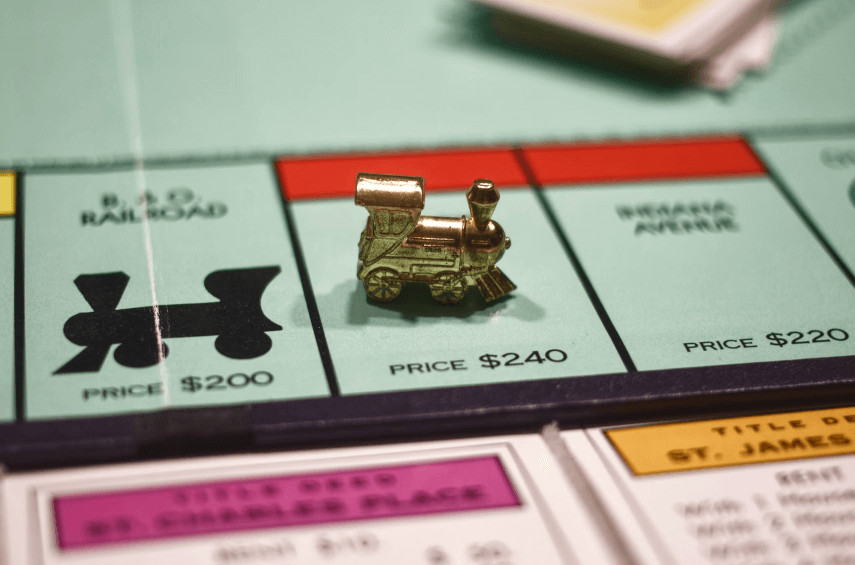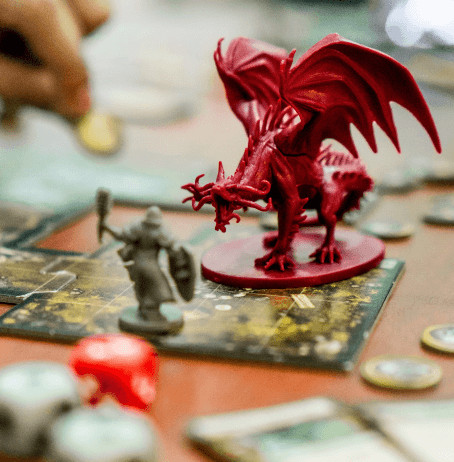
Who doesn’t love a good board game? Whether you’re fond of classic games like Monopoly and Scrabble, or you’re more into newer games like Catan and Pandemic, there’s something for everyone. And with the rise of online and digital board games, it’s easier than ever to get your game on. But have you ever wondered about the origins of board games? Believe it or not, the history of board games dates back to ancient civilisations.
From the earliest known board game in ancient Egypt to the modern board games we know and love today, the evolution of board games is a fascinating tale. So if you’re a board game enthusiast, read on to learn more about the history of these beloved pastimes. One of the earliest known board games is Senet, a game played in ancient Egypt as far back as 3500 BCE. The game was played on a grid of 30 squares, and the goal was to move one’s pieces around the board and get them off the board first.
Senet was so popular in ancient Egypt that it was often found in tombs, suggesting that people of all social classes played it. Other ancient board games include the Indian game of Chaturanga, which is thought to be the precursor to modern chess, and the Chinese game of Go, which is still played and enjoyed today. These ancient board games, while different from the board games we know today, show the enduring popularity of these games throughout history.
Examples of ancient board games and their rules
- The Royal Game of Ur: This ancient Mesopotamian game was played with two sets of seven markers and a set of dice. The goal was to move all your markers around the board and get them off it first. The game was popular in ancient Mesopotamia (modern-day Iraq) around 2500 BCE.
- The Game of the Goose: This board game originated in medieval Europe and was played with dice and markers. The game board was a spiral with 63 squares, each with a different image or action. Players would roll the dice and move their marker according to the instructions on the corresponding square. The first player to get to the end of the spiral won.
- The Game of 58 Holes: This ancient Egyptian game was played with a board that had 58 holes in it and 48 pegs. The pegs were supposed to be in a particular configuration, so players would take turns moving the pegs around the board according to specific rules. The game was popular in ancient Egypt around 2400 BCE.
These examples are a few of the many ancient board games that historians have discovered and studied. It’s fascinating to see how these old games, while different from modern board games, share many of the same elements and principles.
As civilisations developed and society changed, so did board games. Several new board games emerged during the medieval and Renaissance periods, some of which are still played and enjoyed today. One such game is chess, which originated in northern India or eastern Iran in the 6th century.
The game was originally called Chaturanga, and it was played on a board with eight rows and eight columns. Each player had 16 pieces, including a king, a queen, bishops, knights, rooks, and pawns. The game’s goal was to capture the opponent’s king, and the game was won by placing the opponent’s king in a position where it could not escape capture.
Other popular board games from this period include Checkers (also known as Draughts), which originated in the Middle East around 1200, and the German game of Backgammon, which has been traced back to the Roman Empire. These board games, and many others from the medieval and Renaissance periods, are still enjoyed by millions worldwide today. Whether played in person or online, these timeless games continue to captivate and challenge players of all ages.
While board games have been present for centuries, the modern board game as we know it took off in the 19th and 20th centuries. With the development of new printing and manufacturing technologies, board games became more affordable and widely available, leading to a boom in the industry. One of the most well liked modern board games is Monopoly, which was created in the United States in the early 20th century. The game, which simulates buying and selling property, quickly gained popularity and has since become a household name. Other popular modern board games include Scrabble, created in the 1930s. It combines elements of anagrams and crossword puzzles, and Risk, a strategy game first published in the 1950s.
Today, the board game industry is more significant than ever, with various games available for players of all ages and interests, from classic games like Monopoly and Scrabble to newer games like Catan and Pandemic.

Conclusion
Board games have been a part of our human culture for centuries, and their enduring popularity is a testament to the fun and enjoyment they bring to players of all ages. From the ancient board games of Egypt and India to the modern board games of today, the history of board games is rich and fascinating.
Furthermore, if you’re a fan of classic games like Monopoly and Chess, or you’re more into newer games like Catan and Pandemic, there’s a board game out there for you. And with the Kumele Hobby Meetup app, you can create and join board game meetups and connect with other board game enthusiasts. So next time you’re looking for a fun and enjoyable way to pass the time, consider breaking out a board game – you might just be astonished at how much fun you have! Thank you for coming this far. You may also like our blog on How To Start A Food Hobby From Zero To Hero

